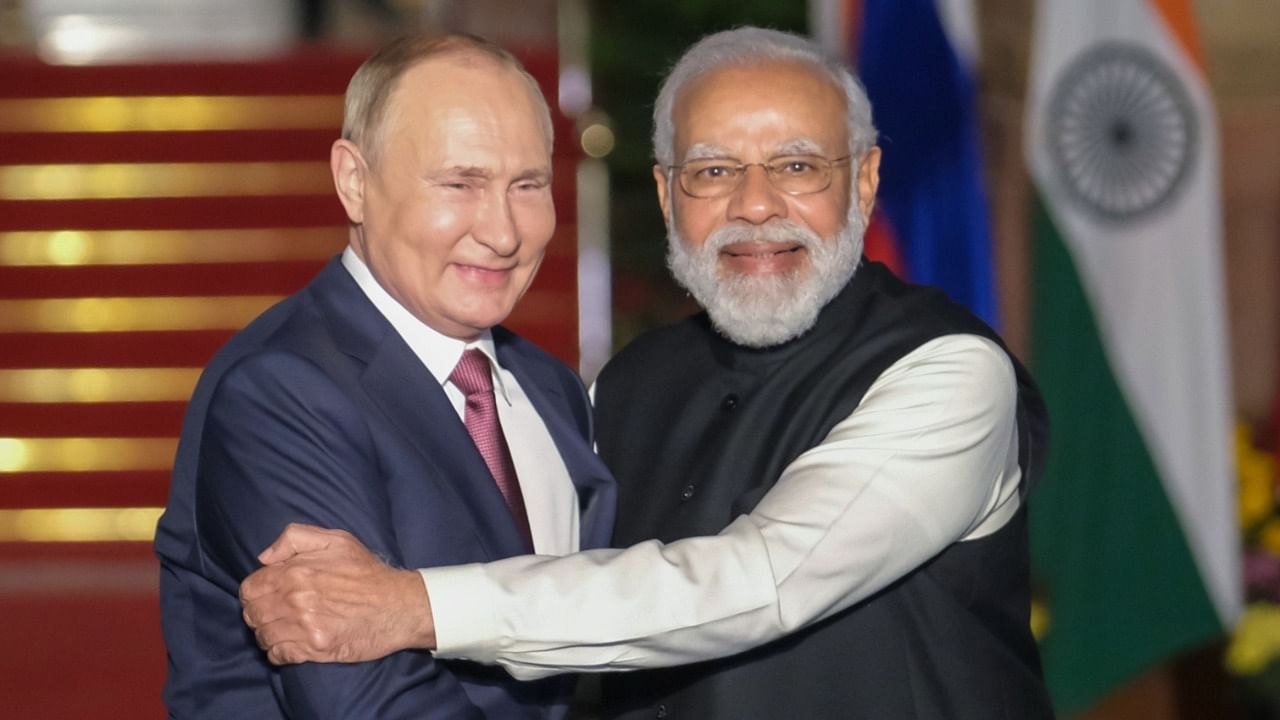
By Mihir Sharma
This was supposed to be the week that Europe celebrated its blossoming relationship with the countries of the Indo-Pacific. Dozens of representatives from those two regions have gathered in Paris, where French President Emmanuel Macron hoped they could talk security and development without having the United States or China looking over their shoulders.
Unfortunately, this week is all about Eurasia, not the Indo-Pacific. Russian President Vladimir Putin has ensured that countries such as India and France aren’t talking about future infrastructure partnerships or how to manage China. Instead, they’re confronting hard questions about what they can actually do or say, together or alone, to manage the challenge posed by a revanchist Russia.
No attendee will be less pleased about this development than India. Indian Foreign Minister Subrahmanyam Jaishankar, asked specifically if India was expecting Europe to stand more firmly against an assertive China while his country maintained close ties to Russia, argued these were “distinct challenges.” He then seemed to imply that Europe had taken its time in formulating a strategy for the Indo-Pacific, so India could be equally dilatory in developing a response to developments in Europe.
As a defense of India’s traditional approach to foreign policy — i.e., doing as little as possible — Jaishankar’s response couldn’t have been bettered. Had he wanted to expand on it, he might have added that India does not believe Russia, with or without Putin, will accept being a long-term vassal of China’s. So, countries such as India need to keep a door open for when the inevitable Moscow-Beijing breakup happens.
But that doesn’t mean leaders in New Delhi can easily embrace a new non-alignment either. India cannot simply seek neutrality between the West and today’s Russia, given that the latter has a record of interpreting neutrality in the face of escalation as active support.
More importantly, there’s the simple matter of consistency. India’s foreign policy is defined around respecting sovereignty. Meanwhile, Russia’s foreign minister has just declared that Ukraine does not even have a right to sovereignty because it does not “represent” all the territory it claims.
India can hardly subscribe to that principle unless it wants to surrender its claim to the parts of Kashmir currently controlled by Pakistan and China. Besides, if we want the European Union to support us against China on the basis of our “shared values,” we have to step up to defend those values — even if just verbally — at least occasionally.
India’s relationship with Russia runs deep. Russian weapons platforms meet the Indian military’s needs, of course. But plenty of people also remember that the Soviet Union backed India when it mattered, in the Bangladesh Liberation War of 1971, while U.S. President Richard Nixon and his National Security Adviser Henry Kissinger schemed against what the former called a “scavenging people” and the latter “bastards.” Fifty years of solidarity cannot be abandoned easily.
Yet it is Russia, not India that is abandoning the relationship. It’s clear that Putin fully intends to seek Chinese President Xi Jinping’s protection against the world’s anger, regardless of what friends of longer standing such as India might think. The Russian president has also chosen this moment for a path-breaking visit by Pakistani Prime Minister Imran Khan to Moscow. Khan’s trip follows a series of successful joint exercises between the Pakistan and Russian militaries — something that would have been unthinkable in the glory days of Indo-Soviet brotherhood.
Welcoming Khan — who is traveling to Moscow after stopping paying his respects in Beijing — looks like Putin’s way of saying, “Any friend of Xi’s is a friend of mine.” At best, it just means that today’s Kremlin thinks its interests prosper best amid confusion and chaos.
If Putin wants to go back to the bipolar world of the 1970s, alienating former allies seems like an odd way to do it. Not even he can imagine that memories of 1971 will outweigh an increasing closeness to China and Pakistan in Indian eyes.
The question is this: Are countries such as India going to make foreign policy decisions on the basis of the past or the future? A decade from now, will India benefit more from a coolly friendly but chaos-loving Russia with little to offer besides weapons, or a Europe that is throwing more money, energy and attention at security and development challenges in the Indo-Pacific?
That question has only one answer. Principles aside, cold pragmatism requires India to develop new friends, given how unreliable the old ones are proving.
Check out DH's latest videos: